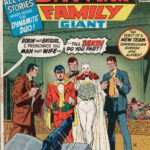Robot Chicken has consistently delivered laughs for many viewers, arguably more so than other animated comedies on television. While its humor often relies on pop-culture references and the sometimes dark reimagining of beloved characters – a style some might call “childhood-ruining” – the core appeal of Robot Chicken lies in its self-awareness and commitment to sketch comedy. Examples of this edgy humor include sketches depicting the Rugrats dealing with mature themes or the Toy Story gang confronting a teenage Andy’s more adult habits.
When comparing Robot Chicken and Family Guy, a key difference emerges: Robot Chicken understands its identity. It embraces its sketch-driven nature, aiming purely to generate laughter through rapid-fire, often absurd, scenarios. Family Guy, conversely, seems caught between wanting to be a sketch comedy and adhering to the sitcom format. This structural constraint forces Family Guy to awkwardly construct flimsy narratives around its jokes. Often, these plots feel like afterthoughts, serving merely as weak scaffolding for a barrage of non-sequitur gags that contribute little to a coherent storyline. The 22-minute sitcom structure demands setup, progression, and conclusion, yet Family Guy’s writing often prioritizes unrelated comedic tangents over narrative development.
The issue is compounded when Family Guy introduces subplots, which further dilute the already thin main story, leaving both feeling underdeveloped and inconsequential. This isn’t to dismiss Family Guy entirely. The show has its moments, particularly when it leans into science fiction tropes, allowing Stewie and Brian to embark on time-traveling escapades or dimension-hopping adventures. These episodes, however, are infrequent exceptions rather than the rule. Ultimately, Robot Chicken’s focused approach to crafting sharp, impactful sketches gives it a distinct advantage over Family Guy. Robot Chicken dedicates more effort to its comedic bits, while Family Guy often relies on cutaway gags that, despite occasionally landing, can feel forced, self-indulgent, and ultimately detract from the show’s overall comedic impact and narrative cohesion.


